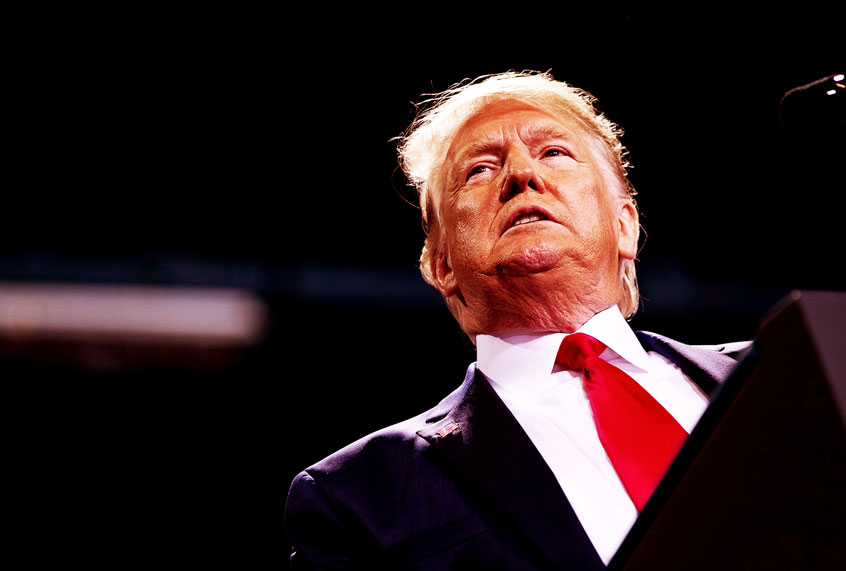Laurence Tribe, a legal scholar at Harvard University who specializes in constitutional law, told Salon on Sunday that President Donald Trump “has violated yet another law” by tweeting the name of a man believed by some to be the whistleblower who drew attention to the Ukraine scandal.
“If by ‘legal ramifications’ you mean to ask me whether Donald Trump has violated yet another law, my answer is yes,” Tribe told Salon by email when asked whether there could be legal ramifications to the president’s tweeting. “The Intelligence Community Whistleblower Protection Act of 1998 (ICWPA) outlaws actions by government officials or agencies that directly or indirectly encourage retaliatory actions against employees who legitimately perform a whistleblower role in the intelligence community, as the whistleblower in this case clearly did regarding a matter of urgent concern, as determined by the Inspector General.” Tribe added that Trump “violated the letter and spirit of the ICWPA” by sharing a name that he held to be that of the whistleblower with over 60 million people on Twitter “for vengeful reasons.”
Tribe also told Salon that he was skeptical about whether the president would face any adverse consequences for his actions, “not because he seems to have deleted the offending retweet rather than leaving it up indefinitely but because he has installed a puppet as Attorney General and has formed what amounts to a cabal with the Senate Majority Leader and the Majority Leader’s GOP caucus.”
At the time this article was written, Trump has left up the tweet that he posted on Friday night which alluded to a comment made by Rep. John Ratcliffe, R-Texas, and mentioned the name of the accused whistleblower. (Salon has decided not to include a link to that tweet to respect the privacy of the named person, regardless of whether that individual is the whistleblower.) Twitter later said that a technical glitch made the post appear visible to some users but not to others, according to The Washington Post. The president also retweeted a link to a story in the Washington Examiner which included the name of the supposed whistleblower.
The president was impeached earlier this month as the result of an anonymous whistleblower drawing attention to a phone call that Trump made on July 25 to Ukrainian President Volodymyr Zelensky. During that conversation, the president asked Zelensky to open an investigation based on a discredited conspiracy theory, one which holds that former Vice President Joe Biden pressured the Ukrainian government to fire a prosecutor in order to protect Hunter Biden (the former vice president’s son) from criminal charges. There is no evidence that Hunter Biden, who at that time worked for a Ukrainian natural gas company named Burisma, was under investigation for any criminal actions. The prosecutor was fired due to an international campaign to root out corruption in Ukraine.
Because Trump put a stop on $391 million in military aid to Ukraine at the time that he made this request, there were concerns that the president was abusing his foreign policy-making powers to pressure another country into discrediting a political rival. (There is no proof yet that there was a direct quid pro quo between the military aid and the requested investigation.) Trump has been impeached for the alleged extortion as well as for obstructing Congress, largely by withholding evidence and preventing current and former officials from testifying.


